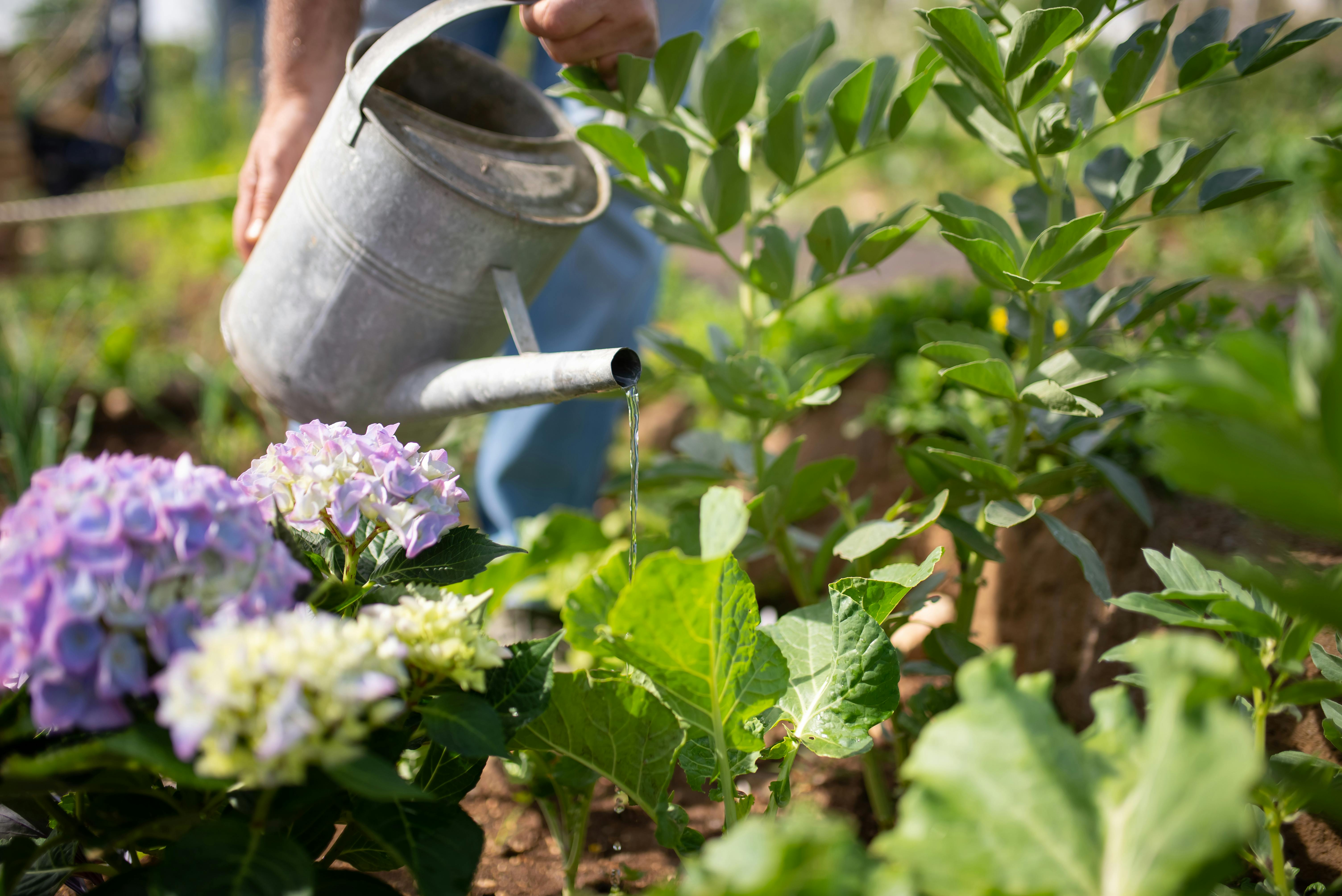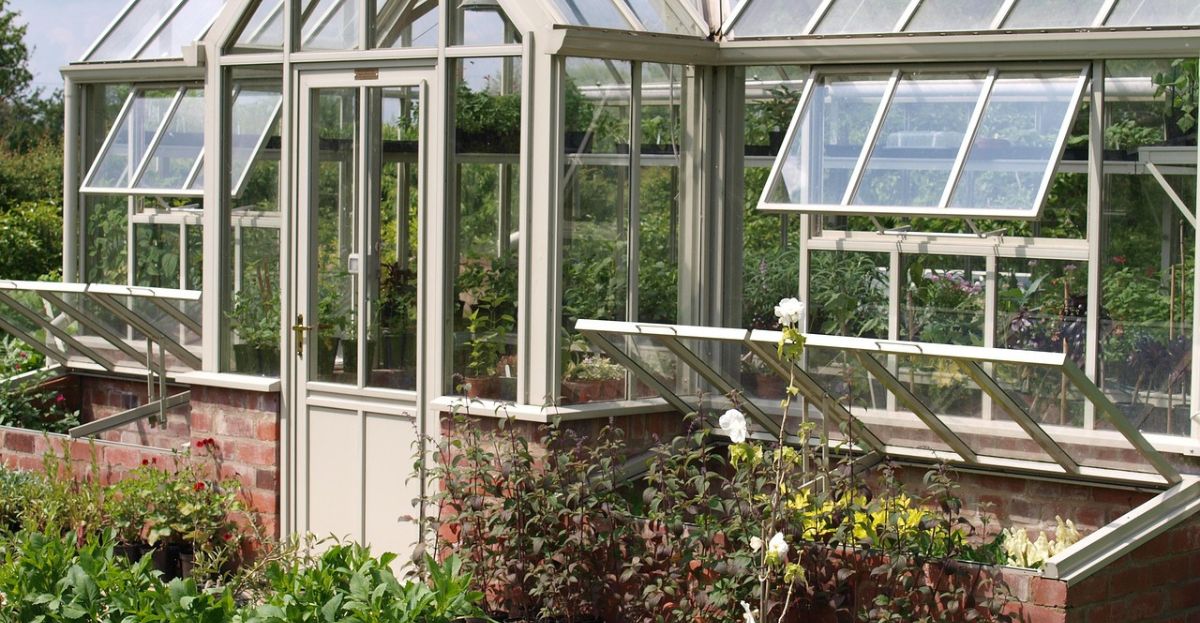10 Reasons Home-Grown Food is the Better Option for You and the Planet
As food prices rise, environmental concerns mount, and health becomes a growing focus, growing your own food offers a sustainable solution that benefits both you and the planet.

In today's world, where food prices are climbing, environmental concerns are intensifying, and health and well-being are top priorities, more and more people are embracing the benefits of growing their own food. Allotments offer a space to cultivate everything from fresh vegetables to fragrant herbs, providing a rewarding way to take control of what goes into our meals and reduce our environmental impact.
But is it really worth the time and effort to tend to an allotment? The answer is a resounding yes. In this post, we'll explore the many advantages of growing your own food, from boosting your health and saving money to contributing to a more sustainable planet. Whether you're an experienced gardener or just starting out, the benefits are clear—and growing your own food is an investment in your future.
1. Save Money on Groceries
With the rising cost of living, many people are looking for ways to reduce their household expenses, and gardening is a fantastic solution. Growing your own fruits and vegetables can significantly lower your grocery bill.
When you grow your own food, you save money in several ways:No transportation costs: Store-bought produce has traveled long distances to reach your grocery store, adding hidden costs that you don’t pay when you harvest from your garden.
No packaging costs: The food you grow doesn't require any plastic or other packaging materials, which is a common source of waste and additional cost at the supermarket.
Higher yields over time: While there are upfront costs for seeds, tools, and soil, the longer you maintain your garden, the more money you’ll save. A small garden can produce hundreds of pounds worth of fresh produce each year!
2. Access to Fresh, Nutrient-Rich Food
Nothing beats the taste of fresh food straight from the garden. The nutritional content of food begins to degrade as soon as it's harvested and continues to diminish during transportation and storage. For instance, store-bought tomatoes can lose up to 30% of their vitamin C before you even get them home.
Growing your own vegetables and fruits ensures that you consume them at their peak ripeness, which means they’re packed with nutrients. For example:
Leafy greens like spinach and kale are packed with iron, vitamin K, and antioxidants.
Root vegetables like carrots and beets provide potassium, vitamin A, and beta-carotene.
Fruits such as strawberries, tomatoes, and apples are rich in vitamin C and essential phytonutrients.
By eating food at its freshest, you’re getting the most out of its nutritional value.
3. Limited Exposure to Harmful Chemicals
One of the greatest concerns with conventionally grown produce is the use of synthetic pesticides, herbicides, and fertilizers. These chemicals can find their way into the food we eat, with potentially harmful long-term effects on our health.
When you grow your own food, you control what goes into the soil and onto your plants. This means you can grow food free from harmful chemicals, and opt for organic practices to protect your health:
Natural pesticides: Use companion planting or organic insecticides to keep pests away.
Fertilisers: Organic compost can enrich your soil, providing nutrients to plants without the need for synthetic fertilisers.
4. Reduce Food Waste
Did you know that approximately one-third of food produced globally is wasted each year? This includes fruits and vegetables that go bad before they are eaten. By growing your own food, you minimize waste:
Harvest as needed: Grow only what you need, and harvest just the amount you’ll consume at that time.
Preserve excess: If you have a surplus, you can freeze, dry, or can the extra produce, ensuring that none of it goes to waste.
In addition, having a home garden can help reduce packaging waste, as many store-bought foods are individually wrapped in plastic or other non-recyclable materials.
5. Environmental Benefits
Growing your own food is not only beneficial for your health and your wallet but also for the planet. Here’s how:
Lower carbon emissions: The transportation of food across long distances contributes significantly to carbon emissions. By growing your own food, you’re cutting out transportation altogether, thus reducing your carbon footprint.
Reduce plastic use: Much of the plastic pollution in our oceans comes from food packaging. By growing your own produce, you’re contributing to a reduction in single-use plastics.
Every step you take to grow food at home can have a lasting, positive impact on the environment.


6. Attract Beneficial Wildlife
When you grow a diverse range of plants, you naturally attract beneficial wildlife to your garden. These include pollinators like bees, butterflies, and birds, all of which contribute to a healthier, more productive garden. Moreover, some insects, such as ladybugs and certain types of beetles, are excellent natural predators that help control pests.
By creating a garden that supports local wildlife, you’re not only improving your garden’s health but also contributing to the ecosystem.
7. Physical and Mental Health Benefits
Gardening is a great way to improve both your physical and mental health. Here are some ways it helps:
Exercise: Gardening involves plenty of physical activity, from digging and weeding to planting and harvesting. This can help keep you fit, flexible, and strong.
Stress relief: Spending time outdoors, surrounded by nature, has been shown to reduce stress, anxiety, and depression. Gardening also offers a mindfulness component, as you focus on the tasks at hand and connect with nature.
Vitamin D: Spending time outside in the sun gives you a natural dose of vitamin D, which is essential for bone health and immune function.


8. Full Control Over What You Eat
In today's food system, it’s hard to know exactly where your food comes from or what’s been added to it. Growing your own food removes the guesswork, giving you complete control over every step—from choosing organic, non-GMO seeds to using natural growing methods free from harmful chemicals. This hands-on approach ensures that what ends up on your plate is fresh, nutritious, and exactly how you intended it. The result? A deeper appreciation for the food you eat, greater confidence in its quality, and the peace of mind that comes with knowing your meals are truly wholesome and chemical-free.
9. Promote Local Food Systems
By growing your own food, you are directly supporting local food systems, reducing the dependence on large, industrial food chains. Many people are opting to grow food locally to encourage sustainability and food sovereignty within their communities. You can also:
Share with neighbours: Exchange produce with neighbors or friends, helping to build stronger local food networks.
Support food banks: If you grow a surplus, consider donating fresh produce to your local food bank or shelters.
10. Grow Together
Research shows that involving children in growing their own food has lasting benefits for their health and well-being.
"It's well established that eating habits formed in early childhood often continue into adulthood. Children who take part in food-growing activities at school tend to develop a more positive attitude toward healthy eating, along with benefits like increased confidence, self-esteem, and enhanced learning abilities."
Additionally, consuming locally grown produce may help strengthen a child's immune system, potentially reducing the risk of asthma and allergies by exposing them to trace amounts of pollen naturally present on home-grown fruits and vegetables.
Final Thoughts
The benefits of growing your own food are undeniable. From saving money to improving your health, promoting environmental sustainability, and fostering a deeper connection with nature, there are countless reasons why more people are turning to home gardening.
So, whether you have a large backyard or a small balcony, it’s never too late to start growing your own food. The rewards, both personal and environmental, are well worth the investment in time, effort, and resources. Happy gardening!

.png)
